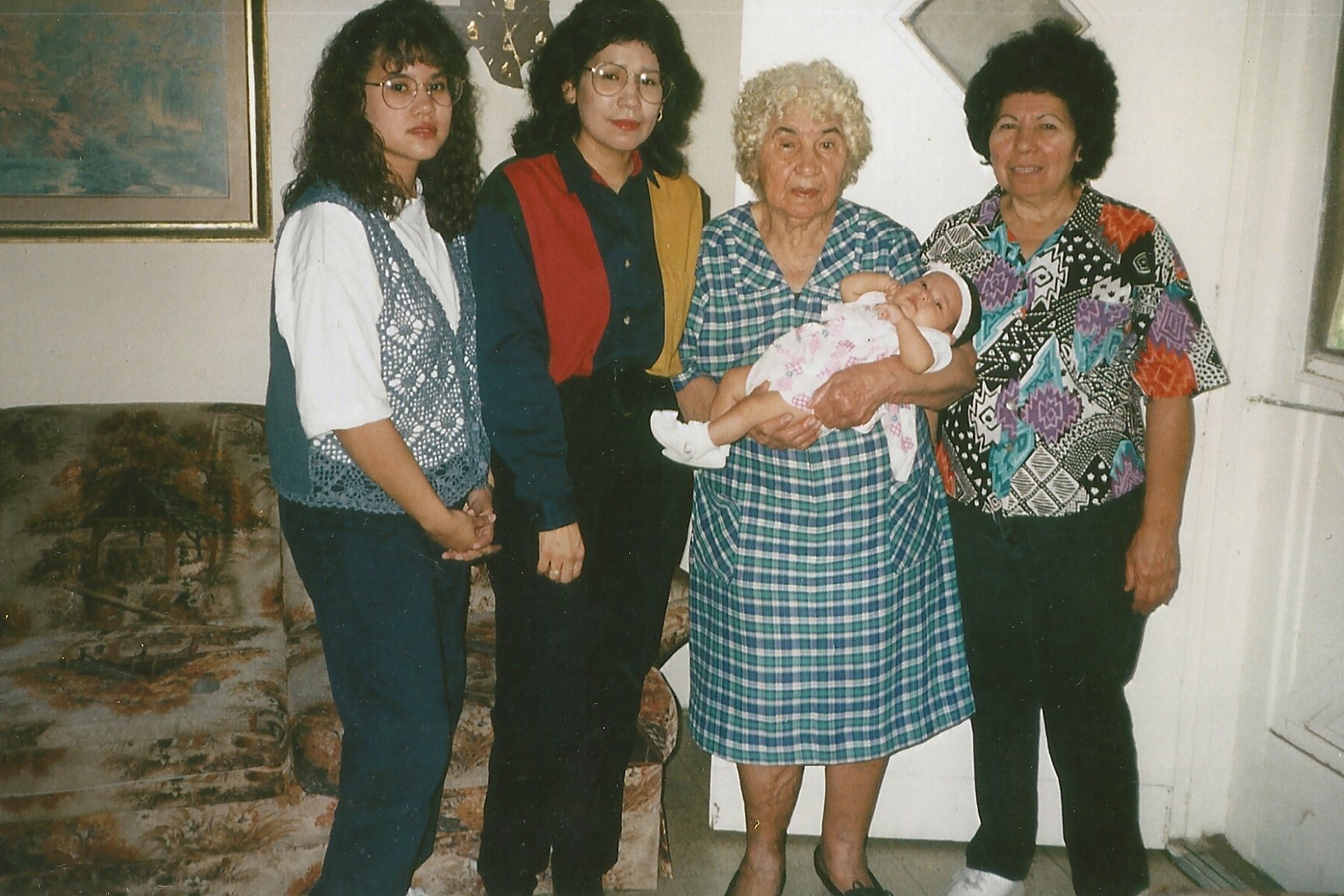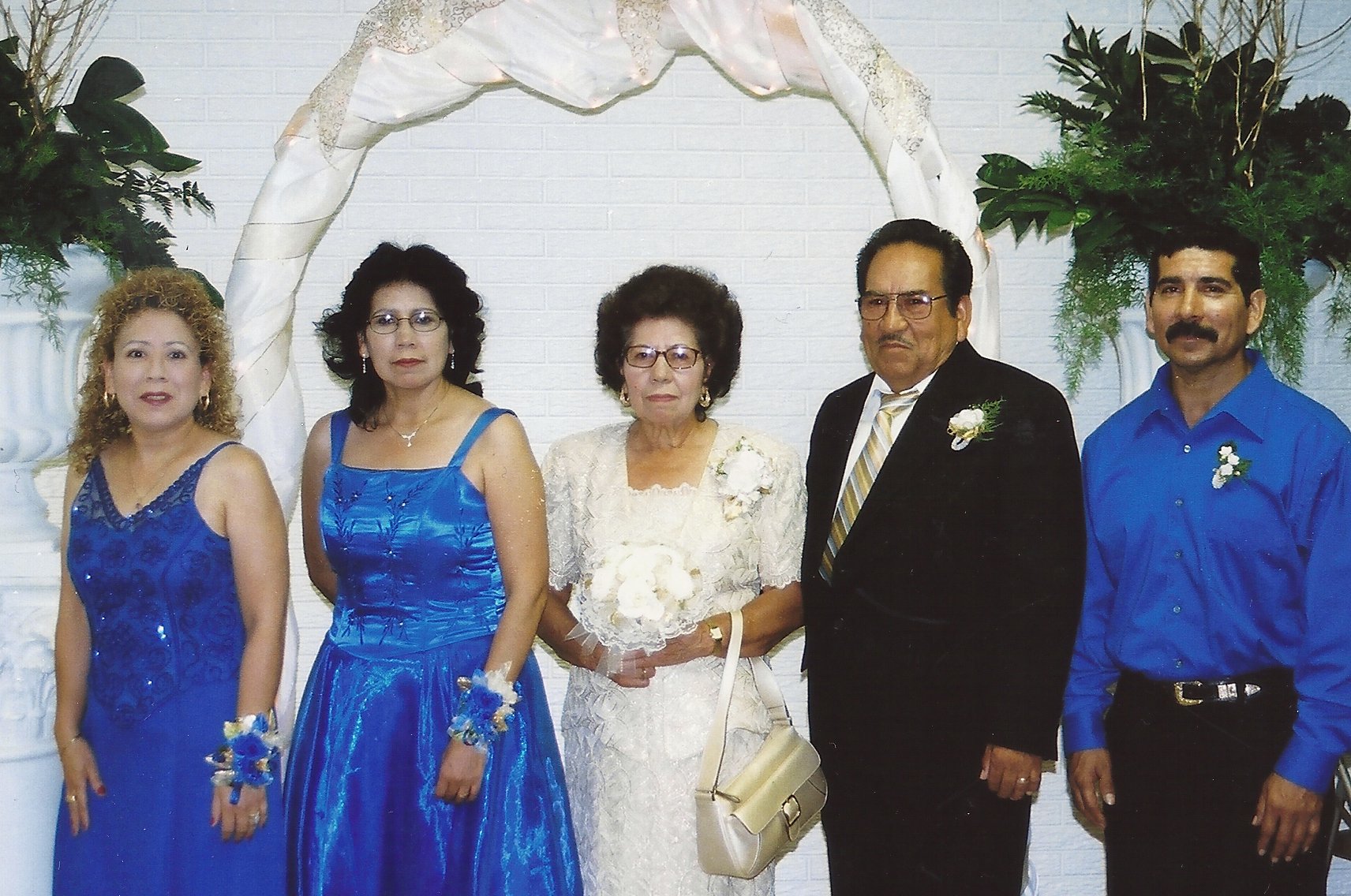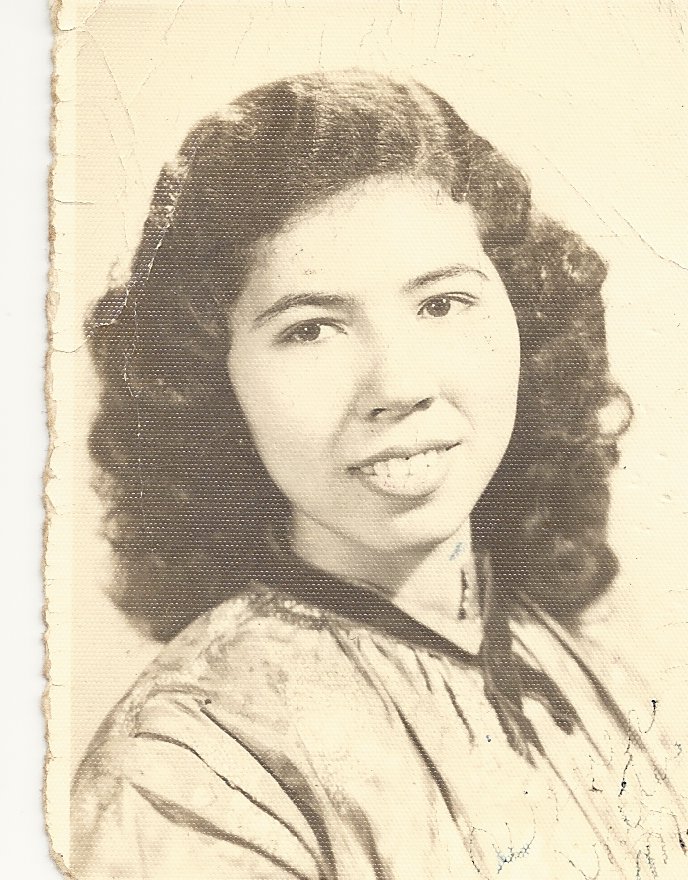TRANSCRIPTION
Describe your childhood. What was your home life like as a child growing up?
As long as I can remember we always had to work, when we came home from school, we had to go work, I had to cook chickens, and I had to help my mother because she had a lot of little kids and I was the oldest, I had to miss school a lot of times because I had to help her wash clothes and take care of my brothers and sisters. I had to come home and wash clothes by hand, it would mostly take all day to wash because it was hard work to wash them by hand and we were a lot of them. At 11 years old I had to do the masa to make tortillas, I had to do that. There was no time do anything else but work and take care of the kids.
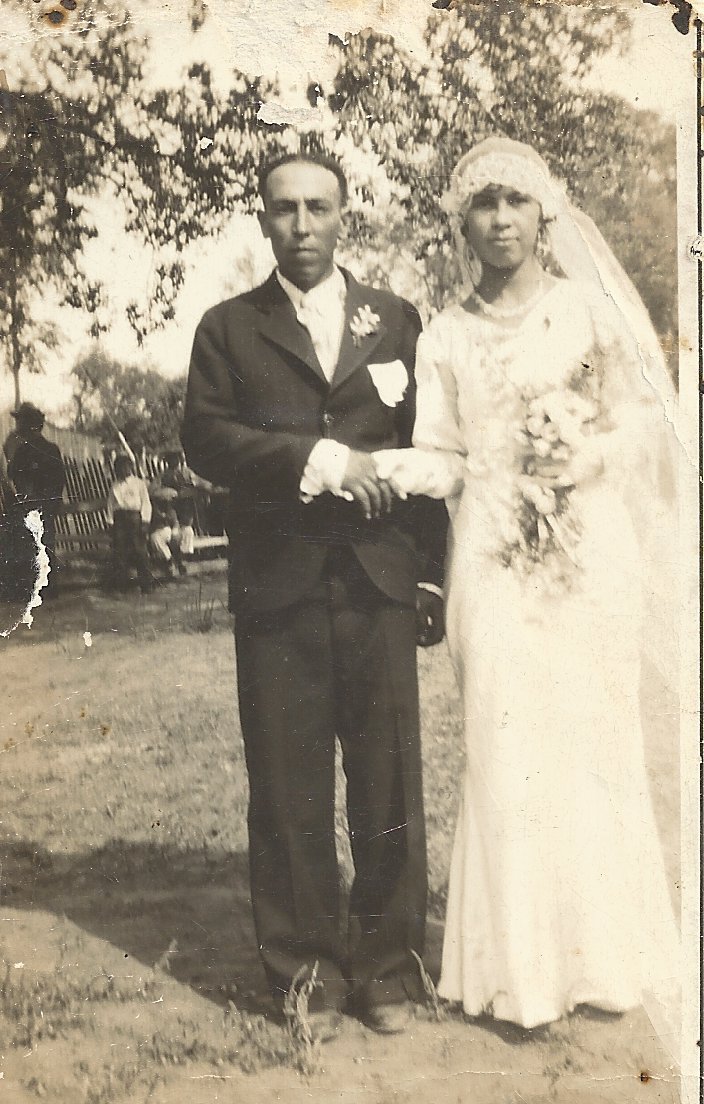
How did you get money?
After school we had to go outside and work in the fields with somebody else usually with some farmers Abuelo knew, so we can help him get money, we had to go hoe peanuts, corn and clean them so they could be put in the machine. I don't know how much Abuelo got paid, but we had to work a lot of hours and it was hard work.
What did you do for fun?
Mostly we didn't get to go to the movies, after we grow a little bit then they took us to picnics and dances, like every other Saturday they took us to dances on weekends, you had to pay like .25, and some would say that was a lot, but not all the time I had to help take care of the kids since I was the oldest, and we were so many, there was 11 of us.
How did you get clothes?
There were some stores that we could buy clothes at but we had to make our clothes, we bought a few, but we had to make the rest, we had to buy the material to make it. I made my own skirts, I had to make my own clothes, not all of it, but most of it.
What did you do for medical needs?
You had to be real, real sick for them to take you to the doctor, otherwise they would give you what they had, if you had a cough or fever they would make some type of remedies. There was one clinic here in Pleasanton and I never did get that sick, but I remember my sister the one that lives in Dallas, one time she got real sick and I remember I went with Abuelo because abuelita had to stay home with the little kids, and I had to go with him, they thought she was going to die, they told him at the clinic he needed to take her to San Antonio we don't know what's to do with her. I don't remember what happened if we took her over there, but I remember she got well. I had to go with him because I was the oldest; Abuelo had to stay with the little ones.
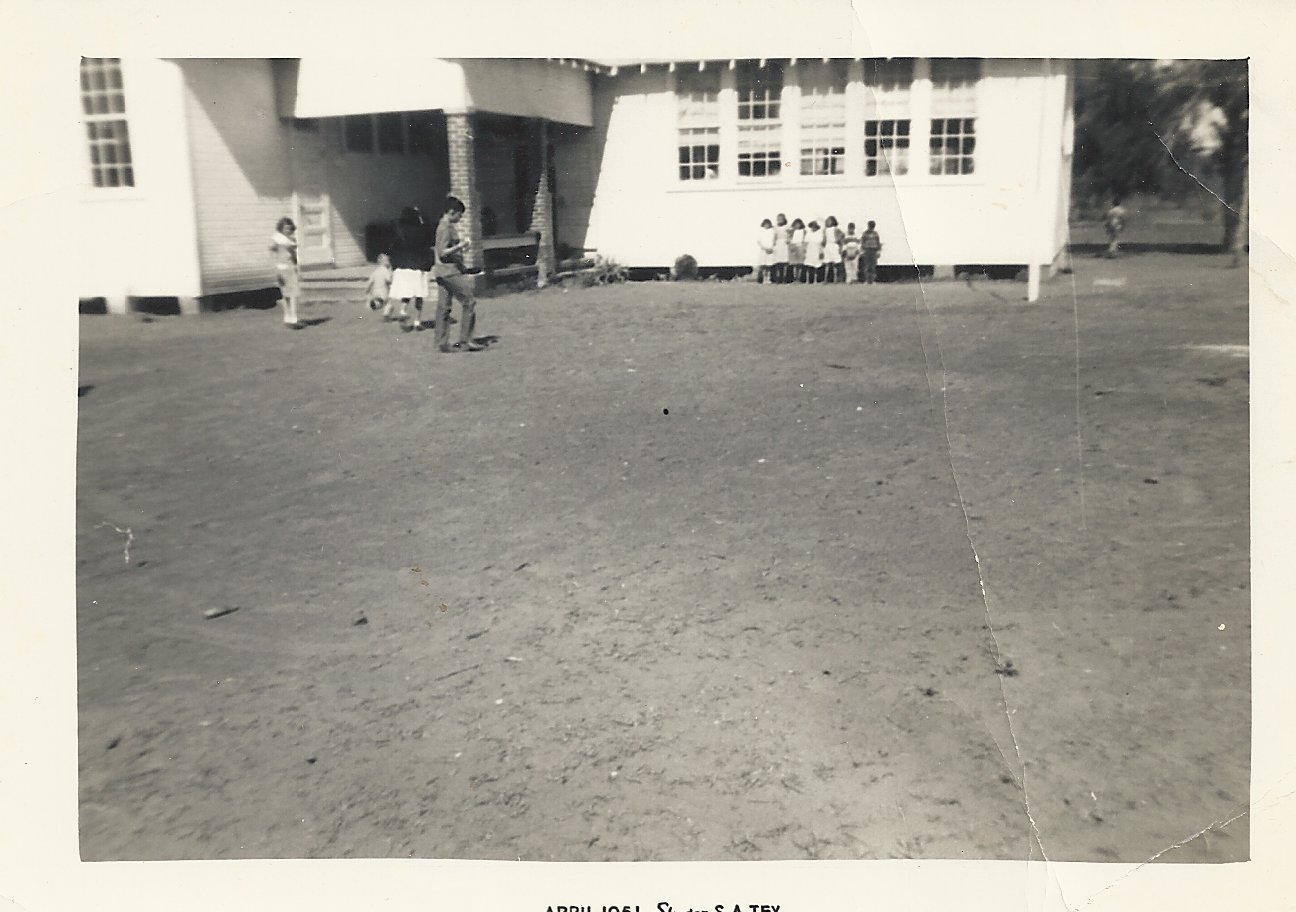
Why did you drop out of the 8th grade? What was school like?
Since I was the oldest I only went to the 8th grade, I didn't go to high school, I stayed home so I could take care of my brothers and sisters. Some of my brothers and sisters did go to high school.
The school I went to wasn't to big the school I think it was two rooms; they had up to the 8th grade that's all they had there. All grades were in one room, I don't know how they did it, because it wasn't that big, there wasn't to many students. I remember there were only two teachers a husband and wife.
I went to even a smaller school before they closed that one and sent us to another one I was seven years old when I went to school. I went to first, second, third and fourth to one school then I went to another one.
I went in an old, old bus to school. When I went to the little one, we lived close to it so I walked, but not to the other one.
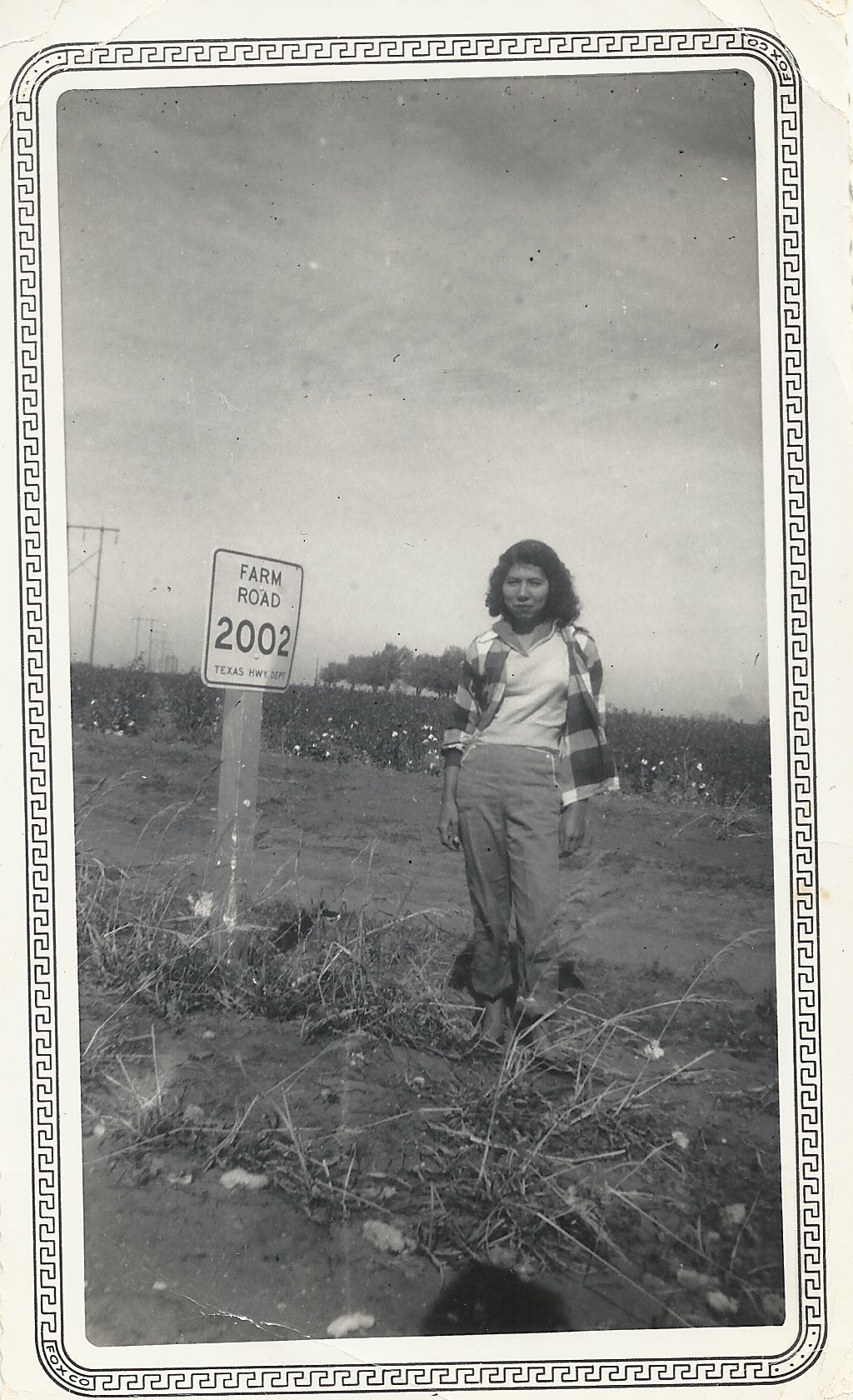
How did you meet Grandpa, how long did you date before you got married?
At the cotton picking fields is where I meet grandpa, but I had known him from before, we got to talking when we were working at the fields. We were already old when we meet, I was about 19, we were just talking to each other, and two years later we got married when we were out here working the fields.
He didn't ask my parents, but they knew I had a boyfriend, I was not allowed to date, but I had other boyfriends that would write to me, but we weren't that serious.
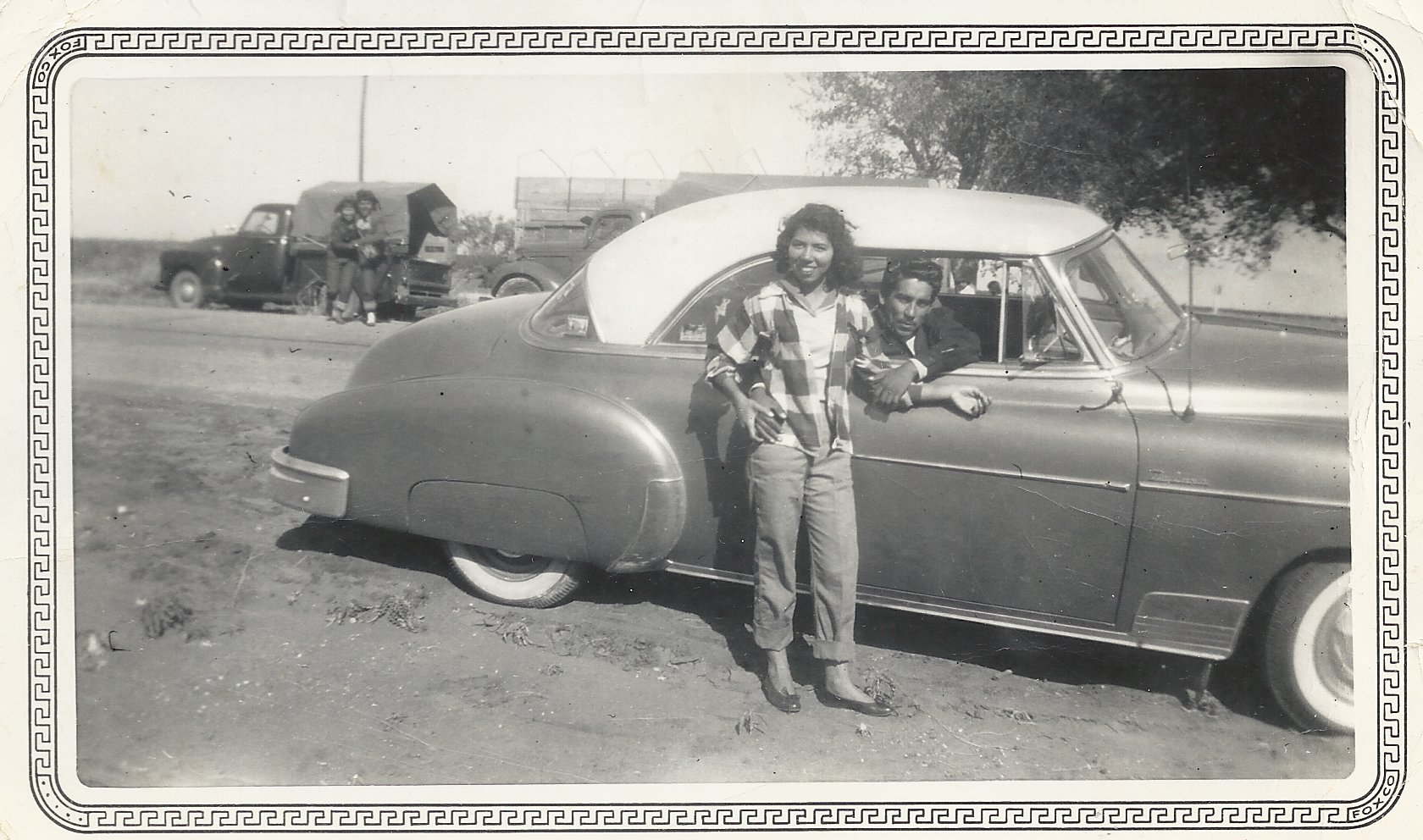
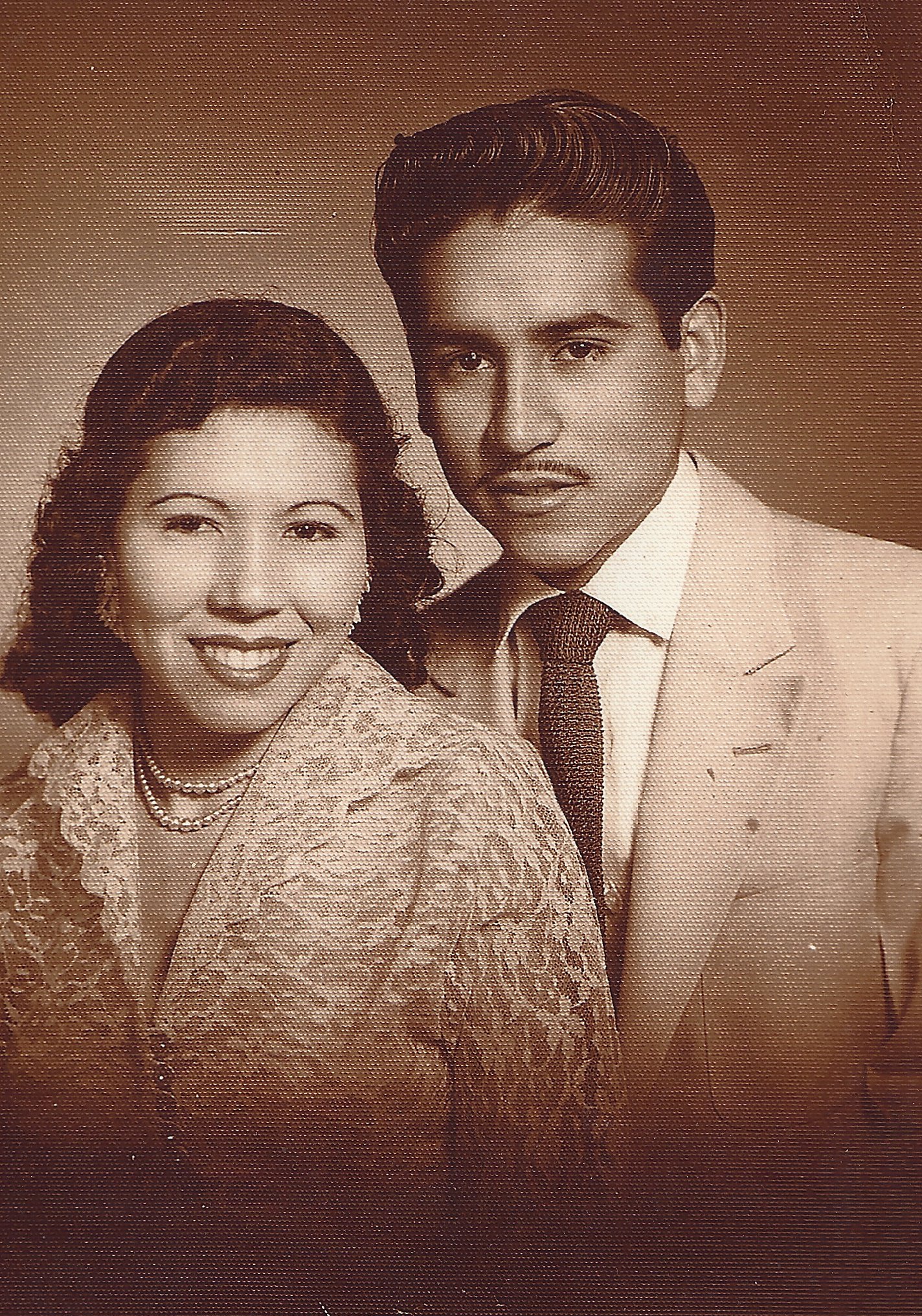
Where did you have to go to pick cotton?
Like in Summer June to August we would go to certain parts of Texas to pick cotton, but in September to December we would go to West Texas, we would go to different towns, we would be there for two or three months in different towns picking cotton, Abuelo would like to be home by Thanksgiving. Everybody went we had to pack clothes and go, a lot of families used to go, we liked it because we got to go to different towns. There would be a lot of small homes set up for families to stay in for a while; wherever you traveled you saw these homes. When I got married to Grandpa he planted watermelons and I had to help him pick up the watermelons and hoe them, it was hard working in the sun.
How did you learn to drive?
Abuelo taught me how to drive, I remember when we used to go from the store where we were living and back home Abuelo told me ok you can drive, I was so scarred, I didn't want to but I said well ok. I was driving one time and hit the side of the gate. After I was married I learned more, I did not have a driver's license but I would drive a little more, I was scared I didn't want to.
Anything else you'd like to add?
Well before I used to work with some ladies cleaning the houses sometimes, I didn't feel like working anywhere like the stores. My life has been about the same as my mother and grandmother, because when I got married we had to pick the water by hand, we had a well that we would get the water from. We had a little house and had to go outside to use the restroom. We had to fill a steel bucket with water to take a bath inside and I even had to wash by hand, later I'm not sure when but Grandpa got me the machine to wash clothes.
